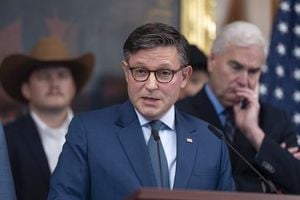Okinawa City has witnessed a significant political transition following the recent mayoral election held on the 26th. Daisuke Hanashiro, 53, has emerged victorious, securing his position as mayor with 31,267 votes against his opponent Mio Nakamura's 22,801 votes. This election was triggered by the untimely death of former mayor, Kuwae, and has set the stage for the continuation of conservative leadership within the city.
The atmosphere surrounding the election was marked by contrasting ideologies, as Hanashiro is supported by the conservative factions, including the Liberal Democratic Party (LDP) and Komeito, whereas Nakamura received endorsements from progressive groups, including the Constitutional Democratic Party and the Japanese Communist Party. Hanashiro's victory reflects voters' preference for maintaining the existing conservative governance, which has been associated with the late mayor's policies.
During the campaign, Hanashiro emphasized his commitment to continue and build upon Kuwae's legacy, stating, “I will inherit the former mayor's thoughts and develop the city even more.” This approach seemed to resonate well with the electorate, who favored stability over change during this pivotal period. On the other hand, Nakamura, 52, proposed collaborative efforts with the prefectural government, focusing on nurturing the youth and establishing comprehensive welfare systems. Despite her efforts, Nakamura fell short as voters favored Hanashiro's vision for continuity.
The voter turnout for this election was slightly higher than previous elections, with 21.01% reported by 5 PM on election day. An additional 18.34% of early voters had participated, which was 3% higher than previous early voting statistics. Polls closed at 8 PM, and results began to trickle in, confirming Hanashiro's win shortly thereafter.
The stakes were particularly high due to the deep political divide related to the presence of the U.S. military bases, such as the expansive Kadena Air Base, which significantly impacts local governance and policy decisions. Hanashiro and Nakamura symbolize these contrasting perspectives on defense and community welfare, with the former favoring collaboration with the central government and the latter advocating for greater local autonomy and opposition to military encroachment.
Following the election, the ramifications of Hanashiro's victory will likely extend beyond local governance, influencing Okinawa's role within national politics and potentially altering the dynamic between local communities and the central government. Observers will be paying close attention to Hanashiro's policies and decisions, particularly how they align with the priorities of the residents concerning economic development, public welfare, and military presence.
Okinawa has historically represented divergent views on Japan's defense policies, with local sentiments often at odds with national strategies. The outcome of this election might solidify conservative policies, but it also raises questions about the future of progressive movements within the region aiming to bring transformative changes to Okinawa's political fabric.
With the city now under Hanashiro's leadership, the incoming mayor will need to address pressing local issues, including economic revitalization and improving social welfare. The community's reaction to his leadership style and policy implementations will be pivotal in shaping future elections and political trends within Okinawa.
Overall, the election results signal the enduring strength of conservative politics within Okinawa City, reflecting broader national trends as Japan navigates complex geopolitical landscapes amid calls for both economic growth and social equity.



